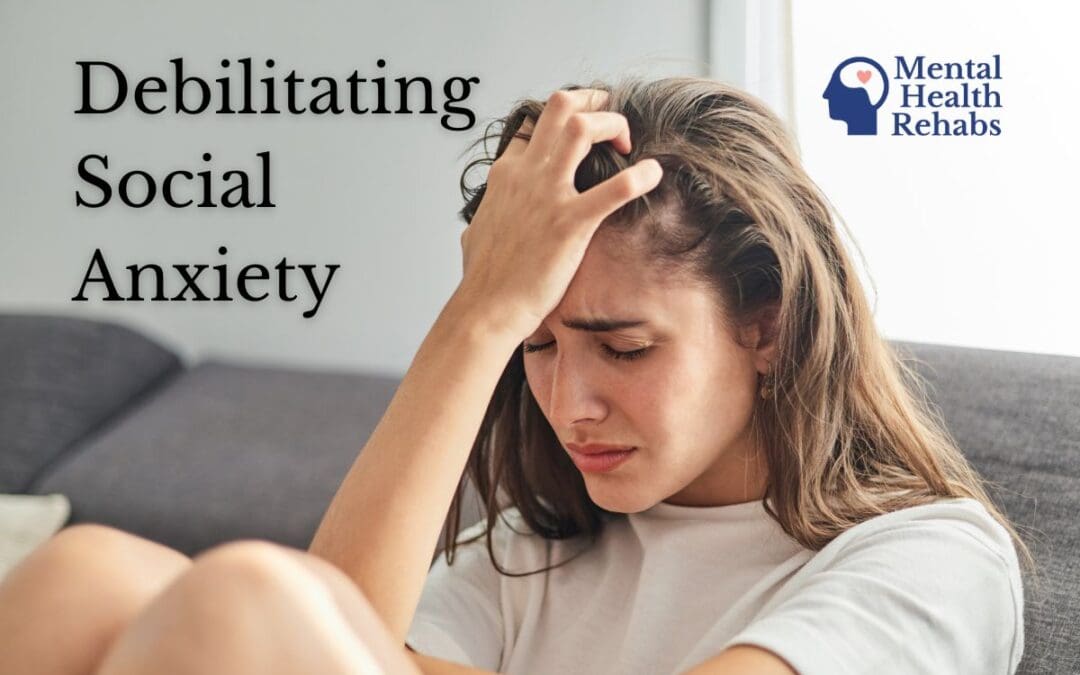Everyone feels anxious from time to time, especially in social situations. First dates, work presentations, parties where you don’t know anyone else. For some people, however, this nervousness spills into minor, everyday interactions and is so intense it stops them from fully participating in their own lives. This excessive fear and self-consciousness in social situations, leading to avoidance and isolation is a type of mental illness. The good news is that it’s treatable and there are multiple effective ways to deal with debilitating social anxiety.
6 Ways to Deal with Debilitating Social Anxiety
Social anxiety can make individuals feel guilty and ashamed of their condition, but it is important to remember that it is an illness that can be treated. Here are a few things you can do for yourself to make this condition more manageable. No matter what, it’s important to practice self-compassion and be kind to yourself even if your progress is slow.
Practice Mindfulness
Mindfulness techniques, such as deep breathing and meditation, can be effective in reducing the physical symptoms of social anxiety. Deep breathing can turn off your fight-or-flight response (which is the hormonal trigger for anxiety) and help slow your racing heart and stop the panic response in your brain. These calming techniques can help individuals focus on the present moment and reduce the impact of negative thoughts and emotions.
Start small and practice
Social skills training can help individuals with social anxiety improve their communication and social skills. This can include learning how to initiate conversations, maintain eye contact, or express oneself more confidently. You could find a professional, but there are plenty of DIY courses or self-help books for this subject.
One easy way to practice: hold a pretend conversation and record yourself. Knowing you’re being filmed can help mimic the pressure you might feel in a real-life situation. Another alternative, stare in a mirror and practice maintaining eye contact and smiling. Act as you imagine your ultra-confident self would and keep that in your mind’s eye when initiating conversations in the future.
Join a support group
Support groups can provide a safe and supportive environment for individuals with social anxiety to share their experiences and learn from others. Joining an online or in-person support group can help individuals feel less alone in their struggles and gain valuable (and practical) advice and tips.
Focus on your health
Lifestyle changes such as regular exercise, good sleep, and a healthy diet can also play a role in reducing symptoms of social anxiety. These can help regulate neurochemicals in the brain and hormones in the body, all of which have been shown to positively impact mood and anxiety. Exercise is particularly beneficial for managing the physical symptoms of debilitating anxiety. Getting your heart pumping mimics many of those symptoms, and as you become stronger, your body will naturally learn how to come down from the exertion more efficiently and to associate the sensations as something positive.
Medication
In serious cases of anxiety, medication is likely to be a necessity (there’s only so much that positive thinking and general wellness practices can accomplish). You’ll need to see a medical professional, of course, who is likely to prescribe antidepressants or anti-anxiety medication. They’re not a cure for debilitating social anxiety, but they’ll reduce symptoms, making the condition much more manageable. Ideally, medication should be used in conjunction with therapy, as it alone may not address the underlying issues that are contributing to your anxiety.
Therapy
Therapy of any kind is a great idea for someone with a mental health condition. One of the most widely-used and effective forms of therapy for social anxiety is cognitive-behavioral therapy (CBT). It helps individuals identify and change negative thought patterns and behaviors that contribute to anxiety, while also learning practical coping mechanisms. Through CBT, individuals learn to challenge and reframe negative thoughts and gradually expose themselves to feared social situations.
Exposure therapy is another common treatment option. As the name suggests, it involves conditioning the individual to the very situations that trigger their anxious episodes. Through controlled and regulated exposure, the brain becomes more accustomed to the stress so that the reactions are less intense.
Finding the perfect solution for your anxiety
Everyone experiences social anxiety differently. What works for one person may not work for another. It’s important to work with a mental health professional to develop an individualized treatment plan that addresses your specific needs and concerns.
No matter which route you take, be patient with yourself. The process of overcoming social anxiety can take time and effort but with the right tools and support, you can make significant progress in managing your symptoms.

